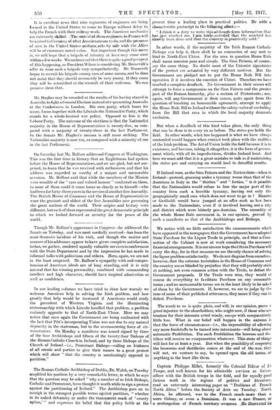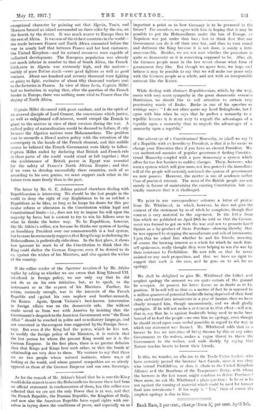Captain Philippe Millet, forraer:y the Colonial Editor of Le Temps,
and well known for his admirable services as liaison .officer with the British troops in the field, and for equally good liaison _work in rthe regions of politics And literature, read an extremely interesting_paper on " Problems, of French North Africa" before the Society _of Arts on Tuesday. -North Africa, he affirmed, was to the -French ;much more than a mere Colony, or • -even a Dominion. -It was -a new France, or -a prolongation • of -French territeryiovegseas. ,He illustrated its
exceptional character by pointing out that Algeria, Tunis, and Morocco formed an island surrounded on three sides by the sea, on the fourth by the desert. It was much nearer to Europe than to the rest of Africa. It was one of the richest countries in the world— the trade between France and North Africa amounted before the war to nearly half that between France and her best customer, the United Kingdom—and its natural resources were capable of unlimited development. The European population was already not much inferior in number to that of South Africa, the French birth-rate in Algeria was extremely high, and tho natives— mainly of pure Berber stock—were good fighters as well as good workers. About one hundred and seventy thousand were fighting or going to fight, exclusive of about fifty thousand workers sent to the factories in France. In view of these facts, Captain Millet had no hesitation in saying that, after the question of the French border in Europe, there was nothing more vital to France than the destiny of North Africa.



























 Previous page
Previous page